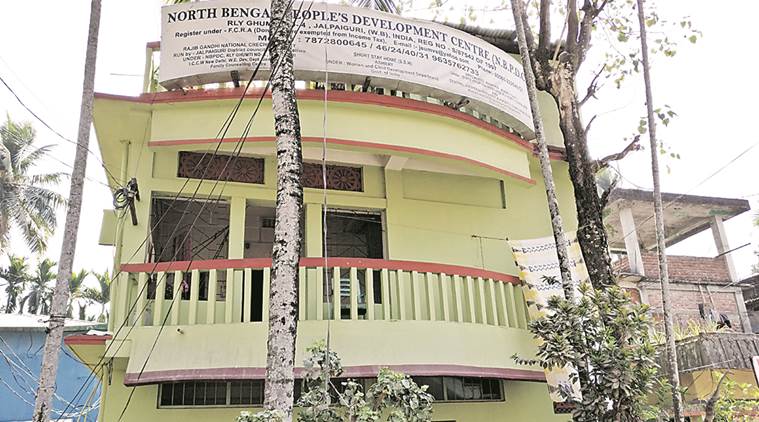Stay updated with the latest - Click here to follow us on Instagram
Journey of a mother, an orphan who lost their kids to child racket
The Jalpaiguri Child Welfare Commission came to know about these cases when the new CWC took charge in August, 2015.
 NGO North Bengal People Development Committee
NGO North Bengal People Development Committee
TWO PARENTS, their stories united by the grief of losing their children. The first is a mother, who has though found her lost daughter, can’t be with her because Jalpaiguri district lacks the equipment needed to carry out tests to prove that the child is hers. The other is someone who himself was raised in the orphanage from where his son has allegedly been trafficked from. He now has no clue where his son is.
The Jalpaiguri Child Welfare Commission came to know about these cases when the new CWC took charge in August, 2015. By then, it was clear to the CWC that something “untoward” was happening at two homes run by NGO North Bengal People Development Committee — Ashray, a home for women, and Sishu Griho, a specialised adoption agency.
Watch What Else Is Making News
All three were run by Chandana Chakraborty, who has since been named the prime accused of what the CID suspects to be an international child trafficking racket.
But when the 32-year-old mother, a resident of Birpara at Madarihat in Alipurduar, arrived at Ashray in the hope of finding food and shelter from the cold last winter, she knew none of this. “I had gone to a home there (Ashray) because I had a child and needed shelter. They said they can’t keep me and the child, so she was sent to a different home. I didn’t mind because at least my daughter would be taken care of. But after I came out f the shelter, she was nowhere to be found. They said I can’t have her back,” she has said in a statement to the CWC.
She added: “I had approached the police, but they didn’t listen to me and asked me to go to a different office.”
It wasn’t until she arrived at the CWC in late 2016 that her case was taken up. On January 27, this year, Subodh Bhattacharya, a member of Jalpaiguri CWC, wrote to Chandana, asking her to “hand over the child to the mother”. But the child, who was then a year-and-a-half, was nowhere to be found — in person or in Chandana’s records at her orphanage.
Bhattacharya was the first person to raise a redflag over the NGO’s wrongdoings. “There is no doubt that this is an extremely organised infant smuggling or trafficking racket. And the deeper you look, the more layers you will uncover,” he said.
It was only after Chandana’s arrest last month that the mother met the children at Sishu Griho and immediately identified her daughter. But by then, the girl had got a new name and her birthday had been officially recorded as October, 2014. The orphanage had registered the child as being “abandoned”. The CWC, wanting to be additionally sure, asked for a bone ossification test — legally required to determine age. “However, we were told that the test cannot be conducted in the district, as it doesn’t have required medical facilities. We are yet to hear from the district administration and the child is still at the home. Her mother is still waiting, at another home,” said Bhattacharya.
The other parent, also a resident of Alipurduar, approached the CWC with a similar problem. In his statement to the CWC, he said: “I am an orphan. I grew up on a railway platform for years and was in and out of several homes, including Sishu Griho. I married a Muslim woman, whose husband had left her and she had a son. I had asked Sishu Griho to take care of the child for a bit because we couldn’t. Soon after, the child disappeared and they claimed they never had him.”
According to documents accessed by The Indian Express, the NGO had recorded in official papers that the child has been “surrendered” — a term used in the Juvenile Justice Act, meaning that such children could be put up for adoption.
However, such ratification of a child as “surrendered” or “abandoned” requires the presence of not just the district child protection officer but also the CWC. “Not only was the CWC not present, it appears that the one who signed on the paper was the NGO’s adoption officer Sonali Mondal — who has since been arrested. She or someone else convinced the boy’s mother to sign on the papers without being told what was written there,” said an official.
The CID said the whereabouts of his child is yet to be confirmed. “In all, we believe 17 children were trafficked and sold to adoptive parents. We are verifying the whereabouts of these children. The matter is being investigated,” said a CID official.
The two parents, CID said, were typical targets of the trafficking racket — uneducated, unemployed and homeless. “She belongs to a community which has always worked in tea gardens and traditionally mistrusts the government. She is also married to a man who is now physically challenged and as a result they have little to subsist on,” said an official.
The man is unemployed and was raised as a Hindu but married a Muslim. According to his statement, he had lived most part of his life on a railway platform. He didn’t know who his parents were. “Chandna would look for such people and listen to them. She would force, scare or confuse them. She would send them off to officials and NGO workers who were part of the racket and the parents would be in an endless loop,” said a CID official.







